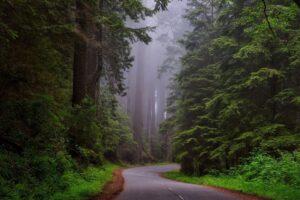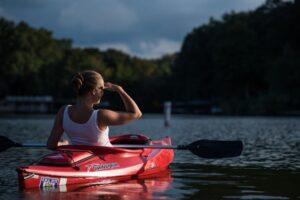Amid the hustle and bustle of modern life, the call of the wild beckons to those seeking solace, relaxation, and a reprieve from daily stressors. Camping, an age-old practice of immersing oneself in nature, offers a unique opportunity for wellness and rejuvenation.
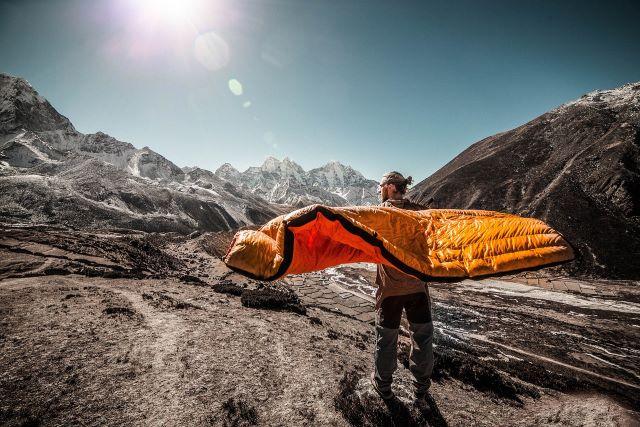
Beyond the crackling campfire and under a blanket of stars, nature’s therapeutic benefits unfold. In this article, we explore the art of camping for wellness, delving into tips for relaxation, stress reduction, and improved sleep that can be embraced by both seasoned outdoor enthusiasts and those new to the serenity of the great outdoors. Discover how communing with nature can be a powerful elixir for your mind, body, and soul.
The Benefits of Camping? More than you would expect!
Camping is more than just an adventure; it’s a holistic experience that contributes to your overall well-being. When you trade the concrete jungle for a forest, mountainside, or lakeside campsite, you open the door to a myriad of physical, mental, and emotional advantages.
Nature’s healing touch can help reduce stress, improve mood, enhance physical fitness, and foster a sense of connection to the world around us. As we dive deeper into this article, you’ll discover how camping can be a transformative journey, offering everything from stress relief to a better night’s sleep.
Whether you’re embarking on a solo camping retreat or planning a family outing, the great outdoors has something to offer everyone in the pursuit of wellness.
Stress Reduction by Connecting with Nature
Immersion in Natural Surroundings
In our fast-paced, technology-driven world, stress has become an all too familiar companion. However, there’s a natural antidote that awaits you in the heart of the wilderness. Immersing yourself in the great outdoors during a camping trip can work wonders for stress reduction.
The soothing sound of rustling leaves, the gentle rush of a nearby stream, and the scent of pine trees can help calm a racing mind. When you step away from the daily grind and into the natural world, you provide your mind with a much-needed break from the constant barrage of stimuli.
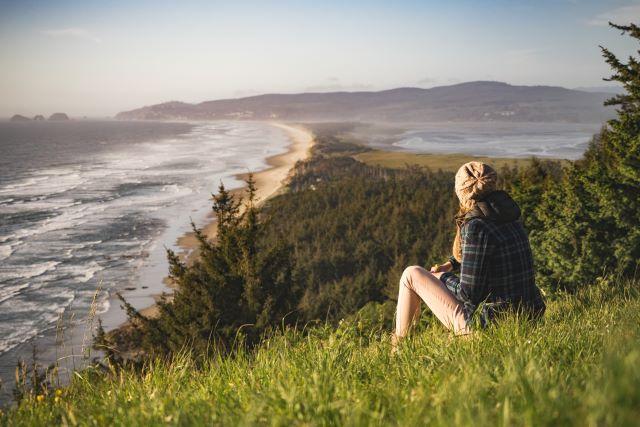
This immersion in natural surroundings can lower cortisol levels, reduce anxiety, and offer a serene environment where you can unplug, unwind, and reconnect with your inner self. Discover the therapeutic power of nature as we explore how camping can become a wellness retreat.
Read also: Science Approves: Outdoor And Greenspace Exposure Are Good For You
Engaging the Senses: Sounds, Sights, and Smells of Nature
Camping offers a multisensory experience that can rejuvenate your mind and body. The symphony of sounds in the great outdoors, from chirping birds to rustling leaves, has a calming effect that can alleviate stress and anxiety. The sight of a starry night sky or a breathtaking sunrise can fill you with wonder and awe, taking your mind off daily worries.
Even the earthy scent of the forest or the crisp, clean air near a mountain stream can invigorate your senses. Engaging with nature through these sensory experiences can transport you to a state of mindfulness, where you’re fully present in the moment, free from the distractions of modern life. It’s a powerful way to reset your mental and emotional well-being, leaving you feeling refreshed and rejuvenated.
Boost Energy Levels and Self-confidence
Camping isn’t just about relaxation; it’s also an excellent way to recharge your energy and boost self-confidence. Spending time outdoors exposes you to natural light, which helps regulate your body’s internal clock and improves sleep patterns. This can lead to increased daytime alertness and improved mood.
Additionally, physical activities like hiking, swimming, or even setting up camp can be surprisingly effective workouts that elevate your fitness levels. Achieving small goals while camping, such as starting a campfire or navigating a trail, can boost your self-esteem and provide a sense of accomplishment. These combined effects help you return from your camping trip feeling more energized and self-assured, ready to tackle whatever challenges come your way.
Disconnecting from Technology
Benefits of reducing screen time while camping
Camping provides a chance to escape digital screens and embrace nature, reducing stress and anxiety. It encourages physical activities and engages your senses for relaxation. Less screen time leads to better sleep, as screens can disrupt sleep patterns. Camping fosters face-to-face interactions and strengthens social bonds, promoting better mental and emotional well-being. It’s a great way to unplug, recharge, and reconnect with nature for improved overall wellness.
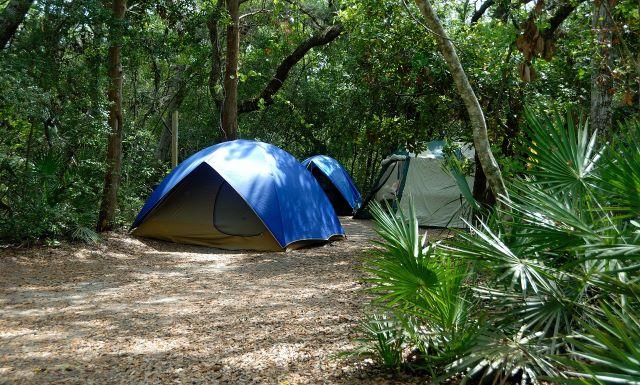
Engaging in offline activities and hobbies
Disconnecting from screens during camping allows you to indulge in offline activities and hobbies. This break from digital distractions fosters relaxation, creativity, and a deeper connection with your surroundings. Whether it’s reading, painting, fishing, or stargazing, these offline pursuits can enhance your camping experience and promote well-being.
We compiled a list of 20 Fun And Rewarding Outdoor Activities For Kids.
Sleep Improvement in the Outdoors
Natural light exposure and melatonin regulation
Camping in the great outdoors can significantly enhance your sleep quality. Exposure to natural light during the day helps regulate your circadian rhythm, making it easier to fall asleep at night. The reduced exposure to artificial light sources also prompts your body to produce melatonin, a hormone that promotes restful sleep. As a result, campers often report better sleep patterns and more restorative slumber.
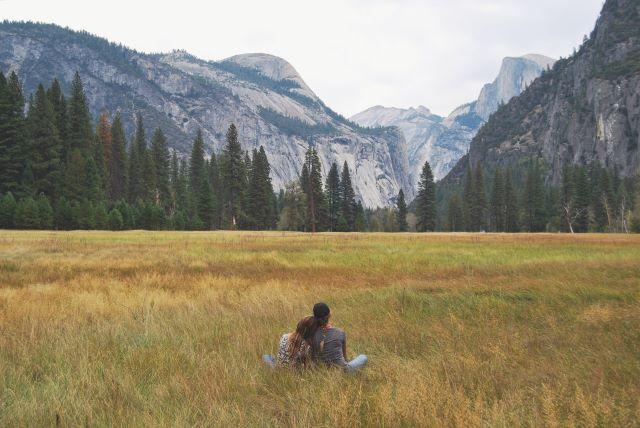
Sleeping tips for a restful night outdoors
Achieving a restful night’s sleep while camping involves some key tips. First, invest in a quality sleeping bag and comfortable sleeping pad to insulate yourself from the ground’s chill. Choose a suitable campsite that’s level and free from rocks and roots. Before bedtime, establish a relaxing routine, such as reading or stargazing, to wind down.
Keep your sleeping area clean and organized to reduce stress. Lastly, dress appropriately for the weather, layering clothing to stay warm in colder conditions and keeping cool in warmer weather. Following these tips can help you enjoy a peaceful night under the stars.
Nourishing the Body and Mind
Healthy Outdoor Cooking
Preparing and enjoying meals in the great outdoors can be a rewarding experience. Opt for nutritious and easy-to-cook camping recipes that satisfy your taste buds and nourish your body. Embrace fresh fruits and vegetables to supplement your diet, and remember to stay hydrated by drinking plenty of water throughout the day.
Explore the culinary possibilities of campfire cooking, but also pack lightweight and portable cookware for convenience. Making good food choices while camping not only fuels your adventure but also contributes to your overall wellness.
Greater Sense of Connection
Spending time outdoors in a camping environment fosters a deeper connection with nature and the world around you. The serenity of natural surroundings provides an opportunity to unplug from the hustle and bustle of daily life, allowing you to connect with your inner self and the environment.
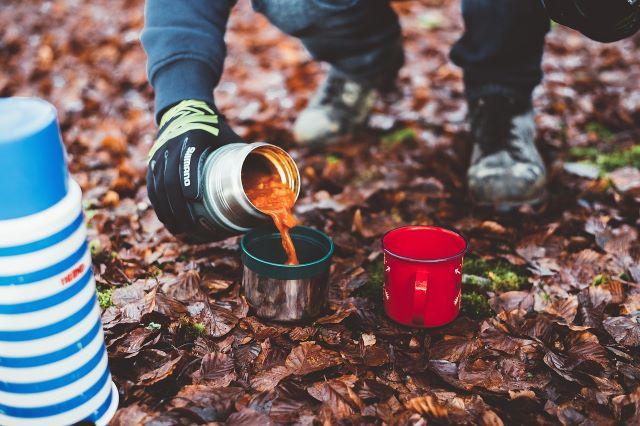
Whether it’s observing wildlife, stargazing, or simply sitting by a campfire, camping encourages mindfulness and an enhanced appreciation for the beauty of the natural world. This sense of connection can bring inner peace and a renewed perspective on life, contributing to your overall wellness.
Relaxation Techniques in the Outdoors
Camping provides an ideal setting for practicing relaxation techniques that can alleviate stress and improve mental well-being. Activities such as meditation, deep breathing exercises, and yoga can be performed in a tranquil outdoor environment, enhancing their effectiveness.
Nature’s calming influence, with the soothing sounds of birdsong and rustling leaves, facilitates relaxation and helps you achieve a greater sense of inner peace. Whether you’re meditating by a peaceful lake, doing yoga amidst towering trees, or simply taking deep breaths of fresh forest air, the outdoors offers a therapeutic backdrop for relaxation, stress reduction, and improved mental clarity.
Mindfulness and Meditation
1. Practicing mindfulness in nature
One of the most powerful relaxation techniques you can explore while camping is mindfulness meditation. This practice involves focusing your attention on the present moment without judgment, allowing you to fully immerse yourself in the beauty of nature.
Find a peaceful spot in your campsite, a meadow, or by a serene stream, and sit quietly. Close your eyes and listen to the sounds of the forest, the rustling leaves, and the chirping birds. Feel the gentle breeze on your skin and take deep, mindful breaths. Notice the colors, shapes, and textures around you. By being fully present in nature, you can release stress, improve mental clarity, and experience a profound sense of calm.
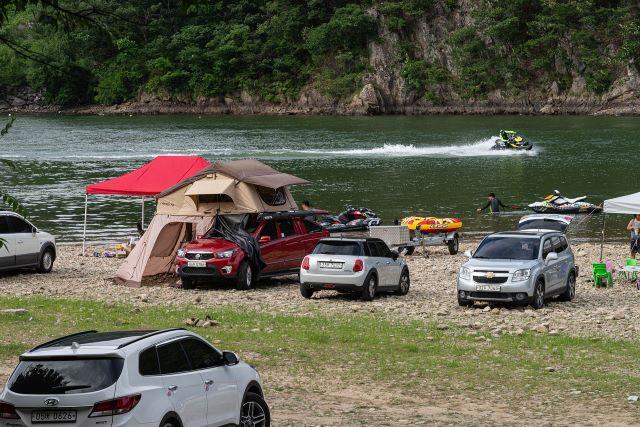
2. Meditation techniques for relaxation
While camping, you can utilize meditation techniques to enhance relaxation and inner peace. Find a comfortable and quiet spot in your campsite or a natural setting. Here are some meditation practices to try:
- Breathing Meditation: Sit or lie down comfortably and close your eyes. Focus on your breath as it naturally flows in and out. Pay attention to the sensation of your breath entering and leaving your body. If your mind wanders, gently bring your focus back to your breath. Deep, slow breaths can help calm your mind and reduce stress.
- Guided Meditation: Listen to a guided meditation using a smartphone app or pre-recorded audio. Many apps offer nature-themed meditations that align with the outdoor environment, helping you connect with nature on a deeper level.
- Body Scan Meditation: Lie down on your back and start by bringing your attention to your toes. Gradually move your focus up through each part of your body, noticing any tension or discomfort. As you become aware of these sensations, visualize them melting away, leaving you feeling more relaxed and at ease.
- Mindfulness of Nature: Practice mindfulness by immersing yourself in the natural world around you. Listen to the sounds of the forest, observe the movement of leaves, and feel the warmth of the sun or the coolness of the breeze. Allow yourself to be fully present in this moment.
- Yoga Nidra: Yoga nidra, or yogic sleep, is a form of guided meditation that induces deep relaxation. It’s often done lying down, making it a great choice for campers. Search for yoga nidra sessions tailored to the outdoors to enhance your connection with nature.
These meditation techniques can help you unwind, reduce stress, and create a greater sense of inner calm during your camping trip, improving your overall well-being.
Yoga and Stretching
1. Gentle yoga poses for stress relief
Incorporating gentle yoga into your camping routine can be a powerful way to relieve stress and tension. Here are some yoga poses that are particularly effective for relaxation:
- Child’s Pose (Balasana): Kneel on the ground, touch your big toes together, and sit on your heels. Extend your arms forward, lowering your chest to the ground and resting your forehead on the mat or ground. This pose gently stretches the lower back and promotes a sense of calm.
- Cat-Cow Stretch: Get on your hands and knees, aligning your wrists under your shoulders and knees under your hips. Inhale as you arch your back, lifting your head and tailbone (Cow Pose). Exhale as you round your spine, tucking your chin (Cat Pose). Flow between these two poses with your breath to release tension in your spine.
- Legs Up the Wall (Viparita Karani): Find a clear wall or sturdy tree and sit with your side against it. Swing your legs up the wall, lying flat on your back with your buttocks close to the wall. This pose promotes relaxation, reduces swelling in the legs, and soothes the nervous system.
- Corpse Pose (Savasana): Lie flat on your back with your arms at your sides, and palms facing up. Close your eyes and focus on your breath. This final relaxation pose allows you to let go of physical and mental tension, facilitating deep relaxation.
- Seated Forward Bend (Paschimottanasana): Sit with your legs extended in front of you. Inhale, lengthen your spine, and exhale as you hinge at the hips, reaching for your toes or ankles. This stretch can alleviate stress in the lower back and calm the mind.
- Tree Pose (Vrksasana): Stand on one foot and place the sole of the other foot against your inner thigh or calf. Bring your palms together in front of your chest. This balancing pose encourages focus and tranquility.
Practicing these gentle yoga poses amidst the serene backdrop of nature can enhance your camping experience. It promotes relaxation, reduces stress, and fosters a deeper connection with the great outdoors.
2. Stretching exercises for relaxation and flexibility
Incorporating stretching exercises into your camping routine can help you relax and improve flexibility. Here are some simple stretches you can do outdoors to unwind and enhance your well-being:
- Neck Rolls: Stand or sit with your back straight. Slowly lower your chin to your chest, then gently roll your head to the right, bringing your right ear toward your right shoulder. Hold for a few seconds, then roll your head to the left. Continue this motion for a minute, breathing deeply. This stretch eases neck tension and promotes relaxation.
- Shoulder Stretch: Stand with your feet shoulder-width apart. Extend your right arm across your chest and use your left hand to gently press your right arm closer to your chest. Hold for 15-30 seconds, feeling the stretch in your shoulder and upper back. Repeat on the other side. This stretch relieves shoulder tension.
- Seated Side Stretch: Sit on the ground with your legs extended. Reach your arms overhead, interlock your fingers, and turn your palms upward. Inhale, elongate your spine and exhale as you bend to one side, stretching your torso and arms. Hold for 15-30 seconds, then switch to the other side. This stretch enhances flexibility in the spine and ribcage.
- Butterfly Stretch: Sit with your feet together and your knees bent outward, resembling butterfly wings. Hold your feet with your hands and gently press your knees toward the ground. Keep your back straight and hold for 15-30 seconds. This stretch loosens the hips and inner thighs.
- Seated Forward Fold: Sit with your legs extended in front of you. Inhale, lengthen your spine and exhale as you hinge at the hips, reaching for your toes or ankles. Hold for 15-30 seconds, breathing deeply. This stretch promotes relaxation and flexibility in the hamstrings and lower back.
- Quad Stretch: Stand on one leg and bend your other knee, bringing your heel toward your buttocks. Hold your ankle with your hand and gently pull your heel closer to your body. Keep your knees close together. Hold for 15-30 seconds, then switch to the other leg. This stretch improves quadriceps flexibility.
- Cobra Stretch: Lie face down on the ground, place your palms next to your shoulders, and slowly push your upper body up while keeping your hips on the ground. Arch your back and lift your chest, looking upward. Hold for 15-30 seconds. This stretch opens the chest and stretches the front of the body.
Performing these stretching exercises in the midst of nature during your camping trip can enhance relaxation, reduce muscle tension, and increase flexibility.
Final Thoughts
Camping offers a unique opportunity to prioritize your well-being and mental health while immersing yourself in the tranquility of the great outdoors. Whether you’re seeking stress relief, better sleep, or simply a stronger connection with nature, these camping and relaxation tips can be your guide to a rejuvenating outdoor experience.
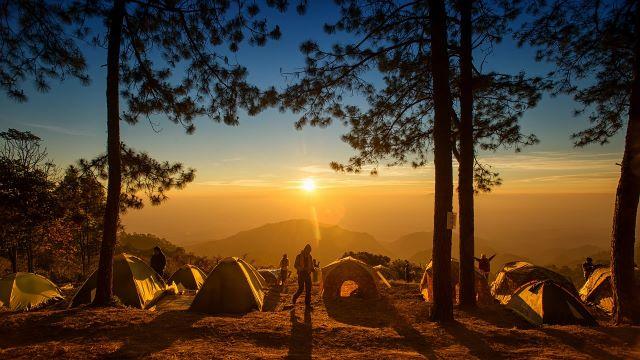
Remember to embrace the beauty of nature, unplug from screens, engage your senses, and practice mindfulness and relaxation techniques. With the right approach, your camping trip can become a holistic wellness retreat, leaving you refreshed, energized, and more connected to the natural world. So, pack your camping gear, embark on your adventure, and let nature work its wonders on your well-being.
FAQs:
Can camping help reduce anxiety and depression?
Yes, camping can be an effective way to reduce anxiety and depression. Spending time in nature and disconnecting from the stressors of everyday life can have a calming and rejuvenating effect on your mental health.
Immersing yourself in natural surroundings, engaging your senses, and practicing mindfulness can help reduce symptoms of anxiety and depression. Additionally, physical activity and exposure to natural light while camping can boost mood and reduce feelings of stress.
Are there any safety precautions to consider while camping for wellness?
While camping for wellness is generally safe, it’s essential to take some precautions. First, ensure you have the right gear and clothing for the environment you’ll be camping in to stay comfortable and safe. Be mindful of wildlife and follow safety guidelines for interacting with animals.
Stay hydrated and well-fed, and be aware of your physical limitations to prevent injuries. Also, practice Leave No Trace principles to minimize your impact on the environment.
Can camping be beneficial for families and children?
Yes, camping can be highly beneficial for families and children. It provides an excellent opportunity for quality family time, bonding, and creating lasting memories. Camping also allows children to develop essential life skills, such as problem-solving, teamwork, and outdoor survival skills.
It encourages physical activity, exploration, and a deep connection with nature, promoting a sense of wonder and curiosity in children. Moreover, camping can help children and families unplug from screens, reduce stress, and improve overall well-being by fostering a greater connection with the natural world.

